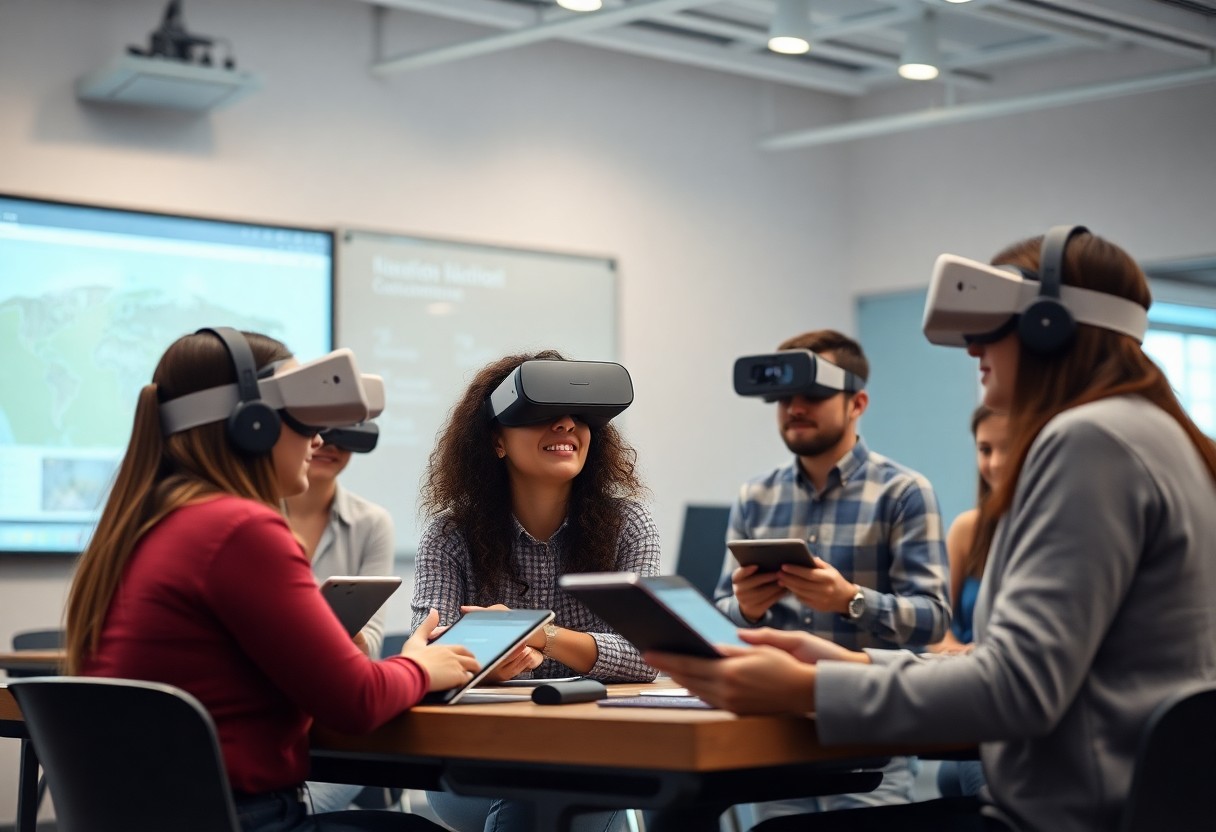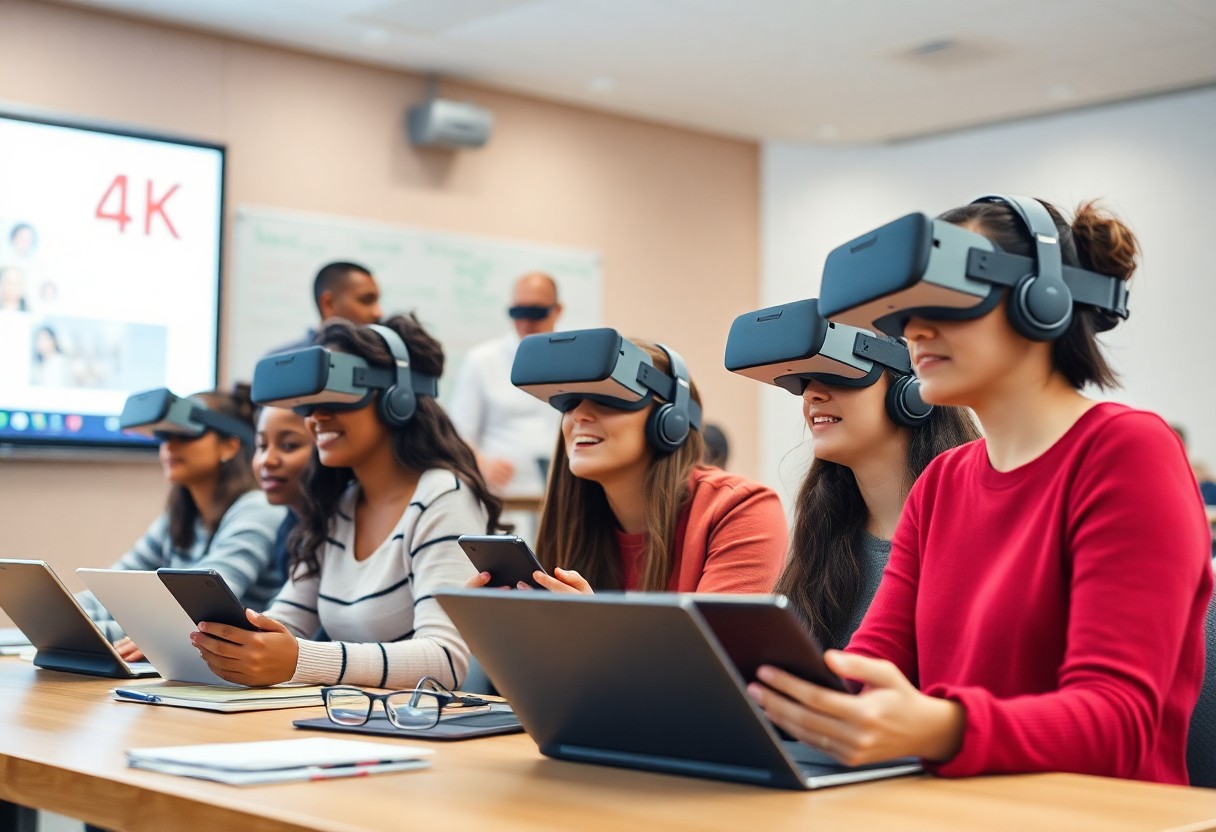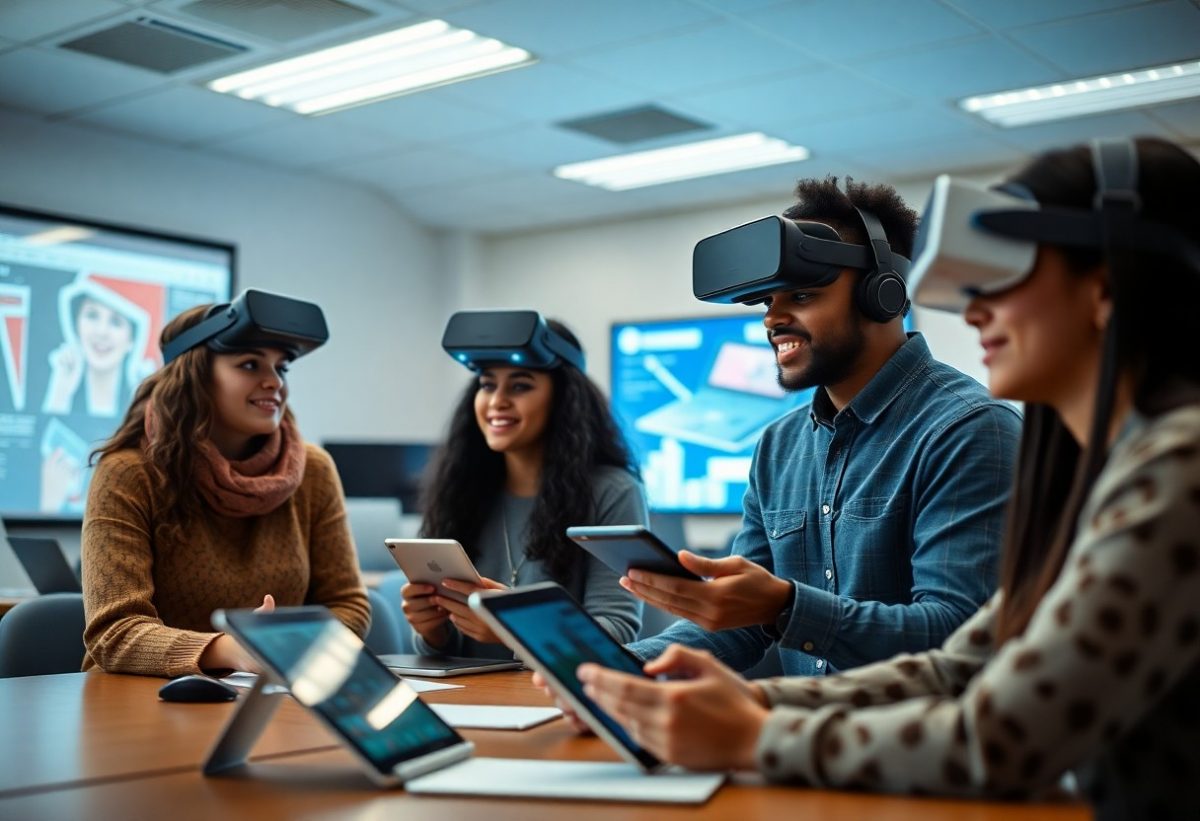You might be wondering how a Learning Management System (LMS) can reshape your educational experience and the broader landscape of teaching methodologies. By integrating technology and fostering personalized learning paths, an LMS empowers you to engage with course material in innovative ways. This post will explore how an LMS not only enhances accessibility and collaboration but also facilitates adaptive learning strategies tailored to your unique needs. Prepare to discover how this powerful tool can revolutionize your learning journey and elevate your educational activities.

Understanding LMS and Its Role
Before plunging into the transformative benefits of Learning Management Systems (LMS), it’s necessary to grasp what they are and how they function in today’s educational landscape. LMS platforms serve as centralized systems that streamline the delivery, tracking, and management of digital learning content. They make it easier for you, as an educator or learner, to engage in a dynamic, organized, and interactive educational experience.
Definition of Learning Management Systems
Role of Learning Management Systems (LMS) in the modern educational framework is to provide a structured platform where you can access, manage, and analyze learning materials. These systems encompass various tools and features that facilitate online learning, assessing progress, and fostering interaction between educators and learners.
Historical Context of LMS
At the dawn of online education, Learning Management Systems were developed to address the growing demand for efficient training and education solutions. They began primarily as platforms for corporate training, enabling organizations to manage their employee education consistently. Over time, you can see how these systems evolved, gaining traction in academic institutions and colleges, as they adapted to accommodate various learning styles and emerging technologies.
Learning Management Systems have transformed significantly since their inception in the late 1990s, shifting from basic course management tools to sophisticated platforms offering engaging multimedia content, assessments, and analytics. As technology advanced, so did the features of LMS, leading to the incorporation of social learning, gamification, and mobile access. These enhancements enable you to experience a more personalized and flexible learning environment, addressing diverse needs and preferences in modern education.
The Shift in Pedagogical Paradigms
Clearly, the educational landscape is undergoing a significant transformation as learners increasingly seek personalized, flexible, and engaging learning experiences. This shift in pedagogical paradigms embraces diverse learning styles and preferences, recognizing that one-size-fits-all approaches are ineffective in meeting the needs of modern learners. With the advent of Learning Management Systems (LMS), educators can now leverage technology to foster collaborative learning environments that empower you to take control of your own educational journey.
Traditional vs. Modern Learning Approaches
Shift away from traditional learning approaches to embrace modern methodologies that prioritize active engagement and learner autonomy. While traditional classrooms often emphasized rote memorization and passive absorption of information, modern learning techniques focus on interactive experiences and critical thinking skills. With an LMS, you can access a plethora of resources tailored to your learning style, making education more relevant and impactful.
The Influence of Technology on Learning
Across the globe, technology is reshaping the way you learn, offering innovative tools and resources that enhance your educational experience. By integrating technology into your learning environment, educators can create dynamic, interactive lessons that cater to your unique interests and preferences. This integration not only fosters a more meaningful connection with the material but also equips you with digital skills imperative for success in an increasingly tech-driven world.
A pivotal aspect of this technological influence is the capability to access information instantly and interactively through various platforms. You can participate in discussions, collaborate with peers, and utilize multimedia resources that deepen your understanding. This technology-driven approach not only retains your attention but also promotes active learning, allowing you to engage with content in ways that resonate with you. Ultimately, this evolution in learning experiences prepares you better for real-world challenges by equipping you with imperative skills and knowledge.

How LMS Enhances Learning Experiences
It is clear that Learning Management Systems (LMS) significantly transform educational experiences by integrating technology and pedagogical approaches. With features like gamification, interactive assessments, and multimedia resources, LMS platforms foster engagement and cater to diverse learning preferences, ensuring that education is not just informative but also enjoyable for you as a learner.
Personalized Learning Paths
About personalized learning paths, LMS platforms provide you with tailored educational experiences that align with your individual learning styles, paces, and preferences. This adaptability empowers you to take control of your learning journey, enabling you to focus on areas where you need more practice while advancing through content that aligns with your personal goals.
Accessibility and Inclusivity
Around the notion of accessibility and inclusivity, LMS platforms break down barriers, ensuring that all learners, regardless of their physical abilities or geographical locations, can access educational resources. This democratization of education allows you to engage with content in flexible ways, whether through captions, screen readers, or mobile access, thereby fostering a more inclusive environment for everyone.
Experiences within an LMS framework prioritize inclusivity by offering various learning tools and content formats designed to accommodate different learning needs. By providing captioned videos, interactive quizzes, and adaptable reading materials, LMS platforms ensure that you have the resources necessary to thrive in your educational pursuits. This commitment not only enhances your learning experience but also fosters a community where diverse voices and perspectives are valued, creating a richer and more collaborative learning atmosphere.
Collaborative Learning Opportunities
Unlike traditional learning environments, where interactions are limited, Learning Management Systems (LMS) foster collaborative learning opportunities that enhance student engagement and knowledge sharing. By leveraging online platforms, you can facilitate group projects, discussions, and peer reviews, allowing you to work cooperatively with fellow learners. This collaborative approach not only helps in mastering content but also cultivates vital skills such as teamwork and communication that are vital in today’s interconnected world.
Online Interaction Tools
To maximize your collaborative experiences, LMS platforms offer a variety of online interaction tools such as discussion forums, chat features, and video conferencing capabilities. These tools enable you to connect with peers in real-time, share ideas, and provide immediate feedback. By engaging through these digital channels, you not only enhance your learning experience but also build a network of support and resources that can benefit your academic journey.
Building Learning Communities
Above all, an LMS provides an ideal environment for building learning communities that extend beyond the classroom. You can create and participate in groups tailored to specific interests or coursework, fostering deeper relationships and collaboration among peers. This collective learning experience allows you to share insights, resources, and perspectives, enriching your educational journey.
Online learning communities are vital for enhancing your personal and professional growth. As you engage with peers in these communities, you have the opportunity to exchange diverse viewpoints, access a variety of resources, and participate in collaborative projects. This interconnectedness not only contributes to a richer learning atmosphere but also encourages lifelong relationships that may benefit you long after your courses end. By actively participating in these communities, you can tap into a wealth of collective knowledge, driving your success in a rapidly evolving academic landscape.
Data-Driven Insights for Educators
For modern educators, embracing data-driven insights can significantly enhance teaching effectiveness. By leveraging the capabilities of a Learning Management System (LMS), you can gather extensive information on learner engagement, performance, and preferences. This data empowers you to make informed decisions, track progress, and personalize learning experiences. As a result, you can create targeted interventions that cater to the unique needs of your students, fostering a more enriching educational environment.
Analytics and Feedback Mechanisms
Analytics can provide you with real-time insights into student performance and engagement levels. Through detailed reports and dashboards, you can easily track learning trends, identify areas of struggle, and evaluate the effectiveness of your instructional strategies. The feedback mechanisms integrated into the LMS allow for immediate survey responses, helping you adapt your teaching methods accordingly to ensure greater learner satisfaction and success.
Tailoring Instruction Based on Data
Mechanisms within the LMS enable you to tailor your instruction according to the collected data. By analyzing assessment results and tracking interaction patterns, you can discern which content resonates with your learners and which areas may need more focus. With these insights, educators can adapt lesson plans, modify instructional materials, and implement varied teaching strategies, ensuring that each learner receives support that aligns with their individual learning styles.
Educators can transform the learning experience by utilizing data to customize instruction. You have the power to adjust pacing, provide supplemental resources, or even rearrange class compositions based on performance metrics. By actively responding to data insights, you can foster an inclusive learning environment that promotes engagement and retention. This tailored approach not only enhances student understanding but also encourages a deeper connection to the material being taught.
Challenges in Implementing LMS
Many educators and institutions face numerous challenges when implementing a Learning Management System (LMS). These obstacles can range from technical difficulties and resistance to change among staff, to the need for thorough training and infrastructure upgrades. Overcoming these challenges is vital to fully leverage the transformative potential of an LMS in modern education.
Technical Barriers and Resistance
Between outdated technology and varying levels of user proficiency, technical barriers often arise during the implementation of an LMS. Additionally, faculty members may exhibit resistance due to comfort with traditional teaching methods or fear of the unknown. Addressing these concerns is vital for a smooth transition to the new system.
Aligning LMS with Pedagogical Goals
For your institution to fully benefit from an LMS, ensuring it aligns with your pedagogical goals is paramount. A disconnection between the LMS functionalities and educational objectives can undermine the effectiveness of both teaching and learning.
In fact, aligning your LMS with pedagogical goals requires a clear understanding of your educational philosophy and learning outcomes. You should carefully evaluate how the features of the LMS can support interactive learning, assessment, and feedback processes. Engaging stakeholders, including educators and students, in this alignment process will help create a more cohesive and effective implementation, ultimately enhancing the learning experience for all participants.
Final Words
To wrap up, an LMS can fundamentally reshape your teaching methods and enhance your students’ learning experiences. By integrating personalized learning paths, facilitating collaborative projects, and providing real-time feedback, you can cater to diverse learning styles and needs. This transformative technology empowers you to foster an engaging and interactive environment that not only meets modern educational demands but also equips your students with skills vital for the future. Embrace this innovative approach to unlock the full potential of your pedagogical strategies.

